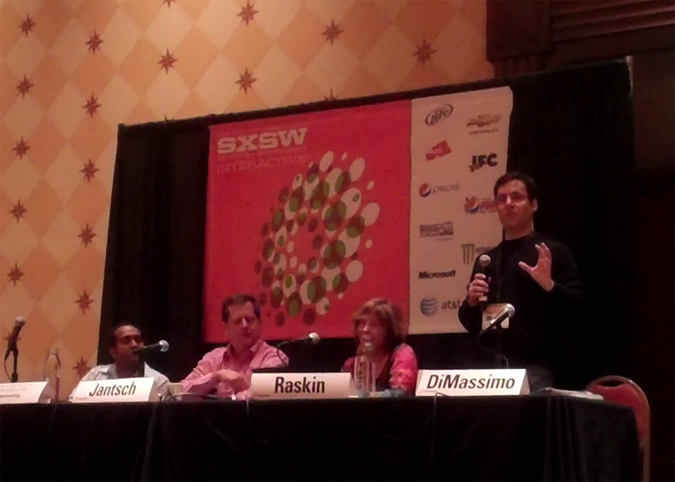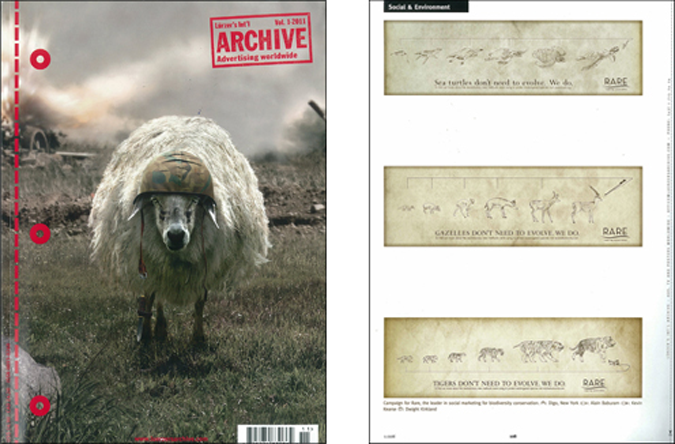By
Team DIGO | 09/24/2015 | in
There was once a man who refused to give up smoking until it was proven beyond a shadow of a doubt that smoking caused disease.
He didn’t live long enough to see the proof.
Today, there are direct (digital, mobile, SAAS, subscription, e-commerce, club…) marketers who refuse to improve their marketing success with an insight-driven multi-channel strategy until the perfect attribution model has been developed.
Every day, another one is buried by a marketer with a more reasonable measure of proof.
Is overall marketing efficiency your ultimate measure? Is making one dollar of marketing spend return two or three or four times as many customers your objective?
If so, you are an optimizer.
If you prefer perfectly attributable though small gains in discrete channels, then you’re an incrementalist.
Optimizers eat incrementalists for lunch.
Sometimes, in very big places, incrementalists work in the middle of a pyramid with optimizers at the top. Even so, they can only swim so far up before they hit a ceiling. Too late, they find that the open market is not a very friendly place for an incrementalist.
Why do incrementalists do it to themselves? Is it because they are trading upside for certainty? Is being sure more valuable to them than being successful? Is being right worth more to them than results?
Or did they just swallow a less intelligent idea of what it is a marketer is supposed to do?
Well … enough musing about the incrementalists, much as I would like to convert as many of them as possible to a life of success beyond explanation.
We are for the optimizers.
By
Team DIGO | 06/07/2012 | in
THE DIGO STANDARD; How we succeed together
Below is the DIGO Standard in its entirety —
01.) Who We Are:
While we can be considered a thriving independent strategy/research/brand/design/innovation/advertising/direct/digital/social marketing agency, we prefer this handle: brand-driven growth network. We make things grow, from product innovation to every facet of promotion.
We’re Here to Make Things Grow:
Movements. Ideas. Products. Brands. Companies.
If we can’t get excited about growing them, we shouldn’t be working on them. The work we do has a purpose and fits into a larger whole. By maintaining that perspective, we make success more difficult. But in facing the extra difficulty, we earn our integrity, self-respect and market value.
We Exist to Inspire:
Our clients, consumers, one another, the world around us.
Clients need to feel our passion and enthusiasm for ideas that can build their business. We didn’t sign up for boring cubicles and never-ending meetings. Let’s make the time our clients spend with us meaningful, fun and inspiring.
Why Do We Say Client Fulfillment?:
Because clients who are really fulfilled-fulfilled as people, professionals, and clients too- will become lifelong clients and in turn, recommend us. That’s how we grow. Great Clients, Great Work, and Great People.
We Are a For-Profit Company:
We provide value to clients and should charge a fair price. And should not be shy or subtle about it.
Partnership:
It’s what comes from investing in people and relationships, valuing them above short-term gain. Make your clients, your partners, your people feel that true partnership is possible. Invest beyond all calculation in people who inspire you. Be an honorable and generous partner at all times.
We Are One:
We are one firm: We have many different brand names on our business cards. We may work in different departments. But we are all responsible for the success of our clients, either directly or indirectly. There is no success apart from common success.
Each of us is Responsible for Our Own Inspiration:
Don’t settle for less. Find, ask, challenge, orchestrate, search, revisit…do what it takes to get inspired to do your best.
We Are Smarter Together Than We Are Alone:
Bands are more successful when everyone knows their part. Let your bandmates play their part.
02.) Listening is More Important Than Talking:
We’re all smart (or else we wouldn’t be here) and it’s not a contest. Speak up when it’s right and listen well and actively.
Remember That People Come Here to Do and Be more:
Don’t put yourself or anyone in a box. Expect creativity from “account people.” Expect strategic smarts from “creative people.” Expect management smarts from everyone. Collaborate with everyone you can. We play roles but if we wanted to be limited by them, we would be someplace else.
The First Rule of a Judgment Business:
We have an obligation to share our point of view, regardless of its popularity, both internally and externally. But once a decision is made, we are equally obligated to support it.
Clients Are People:
If you can get them to feel that you know that, the rest of your job gets easier. Treat them like part of the team, rather than a boss or an obstacle. Tell them what you really think. Joke and confide and take the risk of feeling comfortable around them. Challenge them to inspire you. Challenge yourself to inspire them. Be big enough to celebrate when they have a big idea.
If You’re Here, You’re Smart:
Don’t hold back. There are no bad ideas or dumb questions. Only the ideas you held back and the questions you should have asked but didn’t.
If Things Go Wrong, Speak Up:
If you need help, ask for it. It’s far better to raise an alarm before disaster strikes than after. Together we can solve almost any problem. Communicate early and often.
03.) It’s the Work:
While not every project presents an opportunity for greatness, everyone is an opportunity to practice your craft. In the long run, those who work more, who try it more ways, who do something good and then do something better, who crank, will accumulate many years’ more practice more than their less prolific colleagues. This confers upon them an unmatchable advantage.
Like + Trust = Business:
People hire people they like and trust. It really is as simple and profound as that.
Over-Collaborate:
Especially at the beginning of relationships, while you are earning the trust and admiration that will smooth the inevitable bumps down the road. While figuring everything out, and layering the groundwork for success. Get on more planes. Provide more options. Ask more questions. See the factory, meet the workers, go to the research, talk to the sales force, get a demonstration, sample the product, talk to a board member, brainstorm with the client. Over-communicate. Over-collaborate. Over-deliver. Time and energy invested in relationships pay us back in better work, business and results. Oh, yeah, and better relationships too.
Great Work Wins Business. Great Relationships Keep Business:
We proactively work on relationship building. What are you doing this week to build and strengthen a client relationship?
This is a Relationship Business:
We’re small enough that we can manage personal relationships. So, honor personal relationships. Treat your commitments as sacred. Communicate. Never leave your colleagues in the lurch. Be the colleague you wish for.
Think:
A problem, project or opportunity well defined is half solved. More time is wasted not thinking well at the beginning of projects than can ever be made up by speed, efficiency or piling on staff later.
In Running Meetings:
Start on time, end on time. Have an agenda and stick to it (unless there’s a good reason not to). Agree to next steps and follow up.
Take the Word Brief Seriously:
Let’s not ever make each other guess which part of the brief is the important part. Let’s include the important part. Let’s make sure our briefs are simple, compelling and crystal clear. Nothing in an agency is more sacred.
Make the creative teams and our clients partners in the brief.
Design In Context:
The context is the user’s or the audience’s experience. Design in context. Present in context. Evaluate in context. The first rule of design. And remember that everything that we do is design.
Agree on Strategy, Budget, and Schedule:
Simple, yes. Always followed, no. Let’s remember the basics.
Promise Wisely and Then Over-Deliver:
Make no commitment without consultation. Give clients something they didn’t ask for. Sometimes, deliver ahead of the deadline. End a meeting early and give colleagues, vendors or clients the gift of time.
Great Presentations Tell a Story:
One thought per slide. Tell a complete story, with insights and ideas.
When Presenting Big Ideas, Don’t Sell Executions:
Countless ideas get killed because the client sees execution too early. We sell big ideas first. Then the execution. We like simple descriptions and key visual to buy a big idea. Nothing more.
Creative Work is the Product. Get Behind It. And Be Ready to Defend it When Necessary:
Choice is good. We almost always have three options to choose from. And never one we can’t get behind.
Client Presentations Are as Important as New Business Presentations:
No understudies on presentation day. Casting is important.
04.) We Are All Responsible For Holding One Another to This Standard:
When our colleagues succeed, we all succeed–so help one another exceed the standard. If a colleague is not living up to this standard, we all have an obligation not to let it pass. If you have an issue with a colleague, deal with it directly, privately and professionally before you escalate. If that is unsatisfactory, get help. Professional expertise is a given around here; modeling is the true path to success.
By
Team DIGO | 03/29/2011 | in
Offlining is becoming a growing trend — online. It was a topic of discussion at the recent tech conference SXSW, where Mark DiMassimo exhorted the crowd to step away from their smart phones. DiMassimo and Eric Yaverbaum are offlining pioneers, having launched Offlininginc.com, a site that encourages visitors to make an “offlining pledge.”
An article this month in U.K.-based magazine Prospect takes a closer look at the phenomenon.

“We have (at SXSW) incredibly smart people, very capable people, very motivated people – and what are we working on? What are we obsessed with? We’re obsessed with engagement, stickiness, gamification, making sure that we’re attracting people to our worlds, engaging them. We are working very very hard at making sure that when people start to interact with whatever it is that we want them to interact with, that they go as deep as they can, stay as long as they can, they come back as much as they can. So there’s this incredible creative energy focused on the “on” button. Where is the business model in the off button? Where is the business model in helping people find some balance?” – Mark DiMassimo, speaking at SXSW.
By
Team DIGO | 02/10/2011 | in


by Ronit Herzfeld
The Huffington Post
February 10th, 2011
Last week my friend “Julie” and I finally went out to dinner. I had not seen her for a couple of months and we were particularly excited to have a chance to spend some quality time together. No sooner did we sit down at our table than out came her Blackberry. I felt a twinge in my chest, but held my tongue. A few minutes later, I was sharing some exciting news with her and heard that irritating text sound go off. She immediately reached out to check the message and began to respond. I suddenly felt invisible; it was as if I didn’t exist. When she finished, I asked her if there was an emergency or something critical that she needed to attend to. She said yes but gave me no further details. A few minutes later her text went off and she responded again. At that point I requested that — unless there was a life or death issue, I’d appreciate it if she turned her phone off. I could see how hard it was for her to let it go. It was clear to me that there was no emergency, and that my otherwise very sensitive and caring friend was at the mercy of this little gadget. We are all aware of how helpful, expedient and efficient our various technological devices can be. But what is not so clear is how they may be affecting our minds, our attitudes, and our relationships.
To read the full article click here.









